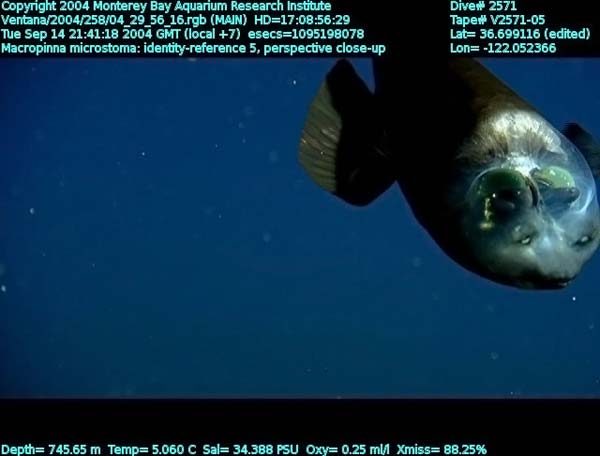|
|
Macropinna Microstoma - Fish With A Transparent Head
|
When light encounters a material, it can interact with it in several different ways. These interactions depend on the wavelength of the light and the nature of the material. Light waves interact with an object by some combination of reflection, and transmittance with refraction.
Some materials, such as plate glass and clean water, allow much of the light that falls on them to be transmitted, with little being reflected; such materials are called optically transparent. Many liquids and aqueous solutions are highly transparent. Absence of structural defects (voids, cracks, etc.) and molecular structure of most liquids are mostly responsible for excellent optical transmission.
Materials which do not allow the transmission of light are called opaque. Many such substances have a chemical composition which includes what are referred to as absorption centers. Many substances are selective in their absorption of white light frequencies. They absorb certain portions of the visible spectrum, while reflecting others. The frequencies of the spectrum which are not absorbed are either reflected back or transmitted for our physical observation. This is what gives rise to color. The attenuation of light of all frequencies and wavelengths is due to the combined mechanisms of absorption and scattering.
|
|









